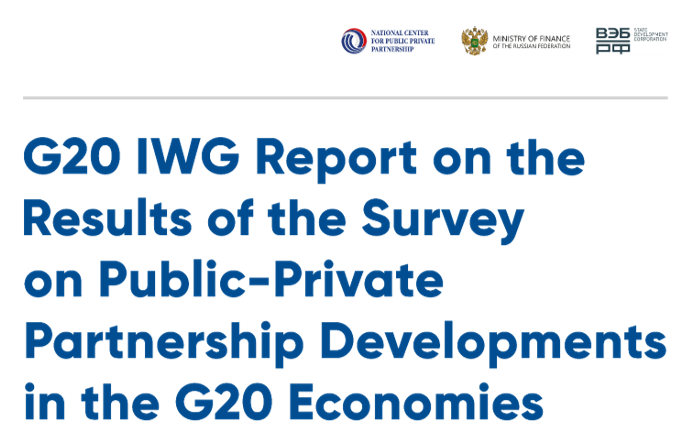Publications
Filter by
337 results found
In 2021, the Global Infrastructure Hub published the findings of a survey of G20 members that collected case studies and examples of projects or programs that demonstrate the benefits of QII or exemplify good practice in their countries or in recipient countries. This survey was undertaken at the request of the G20 Infrastructure Working Group (IWG). It can be accessed here.

The aim of this exercise is to better understand the landscape by cataloguing and mapping what already exists, acknowledging that the list will never be exhaustive.

A report providing quantitative analysis of ten EU National Resilience and Recovery Plans

A Dedicated initiative co-curated by Small Island Developing States (SIDS) and CDRI partners to promote resilient, sustainable, and inclusive infrastructure development in SIDS

The ITF Transport Outlook provides an overview of recent trends and near-term prospects for the transport sector at a global level as well as long-term prospects for transport demand to 2050.




World Bank Benchmarking Infrastructure Development 2020



Risk allocation is at the centre of every PPP transaction, and a deep understanding of the risk allocation arrangements is a precondition to the drafting of every successful PPP contract.

The paper Partnering to Build a Better World: MDBs Common Approaches to Supporting Infrastructure Development presents a brief description of how MDBs work with their Borrowing Member Countries (BMCs) .


InfraTech is defined by the G20’s Infrastructure Working Group (IWG) as “the integration of material, machine, and digital technologies across the infrastructure lifecycle” and is supported by three reference notes produced in collaboration between the G20 IWG, the World Bank and the GI Hub: 1) The InfraTech Stock Take of Use Cases; 2) The Value Drivers for InfraTech; and 3) The InfraTech Policy Toolkit.


In just a few years, ESG, also known as sustainable or responsible investing, has moved from a slightly idealistic nicheto front-page, a mainstream dimension for investors, one that strongly influences the performance and resilience of their investment over time. This is particularly the case in infrastructure, in view of its wide reaching and long-term consequences for the community.

A series of methodologies and tools based on the evidence-based infrastructure (EBI) approach, helping governments assess and improve their capacity to plan, deliver and manage infrastructure systems.


The G20 Infrastructure Working Group (IWG) Survey on PPP Development underlying this Report provides reference on the frameworks for infrastructure financing through Public-Private Partnership in G20 economies


The Reference tool is meant to serve as a practical tool to help governments and other stakeholders understand and implement the critical success factors that deliver inclusive infrastructure.

The objective of the report and the accompanying index is not simply to rank countries, but to use score movements as a benchmark from which to investigate trends, identify successful PPP performers, and focus on the approaches that can facilitate a better understanding of common challenges and best-practice standards.


OECD Investment Policy Reviews present an overview of investment trends and policies in the countries reviewed, using the OECD Policy Framework for Investment to assess the climate for domestic and foreign investment at sub-national, national or regional levels. They then propose actions for improving the framework conditions for investment and discuss challenges and opportunities for further reforms.



 View the PPP Risk Allocation Tool website
View the PPP Risk Allocation Tool website

